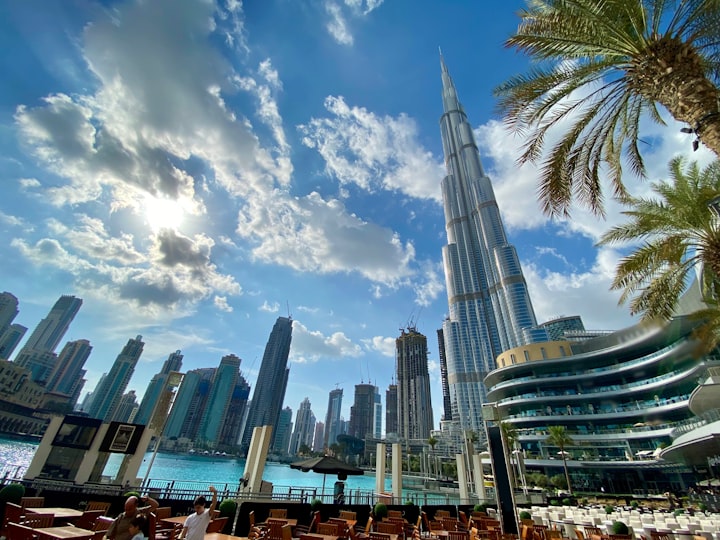The growing Gulf rivalry that's pushing up oil prices
By Sameer Hashmi Middle East business correspondent on 08/07/2021 and re-edited by me on 11/07/2021.

https://www.bbc.co.uk/news/world-middle-east-57753667
The bitter public rift between UAE and KSA over oil production quotas this week caused talks between the biggest oil-producing nations in the world to be abandoned and left energy markets in limbo, pushing oil prices to a 6 year high.
Opec+ 23 nations that comprises the organization of petroleum exporting countries cartel and allied producers like Russia postponed their negotiations due to fears about its stability of a group that has deftly handled supplies over the past 18 months to cope with the coronavirus related global economic crisis.
The problem occurred last week when UAE rejected a proposal by Opec+ leaders Kingdom of Saudi Arabia and the Russian Federation to extend output curbs for another eight months.
UAE wish to renegotiate its current baseline, the level from where the production cuts or increases are calculated, so it has the freedom to pump out more oil. Such a renegotiation Saudi Arabia and Russia oppose.
The energy ministers of UAE and Saudi Arabia whom are close allies went public with their differences such an unusual turn in these negotiations.
Ben Cahill a senior fellow at the Center for Strategic and International Studies in Washington said, "the rift is surprising but perhaps was inevitable".
He further adds "Abu Dhabi's production capacity is at odds with its Opec quota. To raise its production it has invested in a lot of money resulting in the demand picking up. You can understand the UAE's frustration over the last year at its inability to increase production".
Two princes
The Arab world geopolitics has been shaped for several years because of Saudi Arabia and UAE's partnership.
The cementing of both nations alliance was instrumental due to the personal bond between Prince Mohammed Bin Salman of Saudi Arabia and Crown Prince Mohammed Bin Zayed of Abu Dhabi.
Such men as seen as de facto rulers un their country with ambitious visions.
Moving aside from all the oil talks these two nations have been deeply operating together on strategic issues. In the 2015 fight against the Iran aligned rebel Houthi movement in Yemen as well the 2017 diplomatic, trade and travel embargo on Qatar they both formed an Arab military coalition.
How the UAE emerged as a regional powerhouse
How Saudi Arabia's crown prince rose to power
Shift to green energy 'could cost oil states $13tn'
However cracks in their relationship started appearing two years ago when the UAE withdrew majority of its troops from Yemen that has made Saudi Arabia upset with them.
In the month of January UAE accepted but reluctant to it a Saudi-led deal to the end of the Qatar embargo but trusting Doha still remains wary. Like wise Saudi Arabia did not like UAE's decision to normalise relations with Israel last year.
Cracks deepened on February when Saudi Arabia asked the multinational companies to relocate their regional HQs to it's territory by the year 2024 or lose out on government contracts. UAE saw this as an implicit attack on Dubai the commercial hub of the region.
When UAE blocked the proposed Opec+ deal, Saudi Arabia retaliated by suspending flights to the UAE. They cited coronavirus variant concerns but the decision came just ahead of an Islamic holiday when many people head to Dubai for a break.
Saudi Arabia has announced that it would exclude imports from free zones or linked to Israel from a preferential tariff agreement with the other gulf states that revolves around the free zone model. This has delivered a blow to UAE's economy.
Economic competition
This Opec+ tussle is underlining a growing economic rivalry with both countries whom are trying to diversify their economies by reducing their dependence on hydrocarbon exportation.
With the Saudi Kingdom adopting an aggressive economic strategy under it's prince Mohammed Bin Salman, they are now competing in sectors like tourism, financial services and technology.
Associate fellow at Chatham House in London, Neil Quilliam said, "The Saudi Kingdom is a giant in the region that is waking up and that is defiantly a concern for the Emiratis"
He goes on, "if Saudi Arabia transforms into a dynamic economy in 15 to 20 years time then that would threaten the UAE's economic model".
We are still unclear if or not Saudi Arabia or the UAE will agree to the new Opec+ deal.
But a Saudi analyst close to the royal court, Ali Shihabi, does not believe the rift will hamper their relationship in the long run despite the Emiratis' rigid stance came as a shock to the Saudis especially given that they had worked very hard to achieve consensus.
The analyst said that "both sides had bigger disagreements in the past".
He further adds that "relationships everywhere goes through ups and downs especially the UK and USA. But the fundamentals of the Saudi and UAE relationships are too strong to cause any permanent damage".
About the Creator
Rumman Mir Sharif
Hi there my name is Rumman and I love to read and write.






Comments
There are no comments for this story
Be the first to respond and start the conversation.